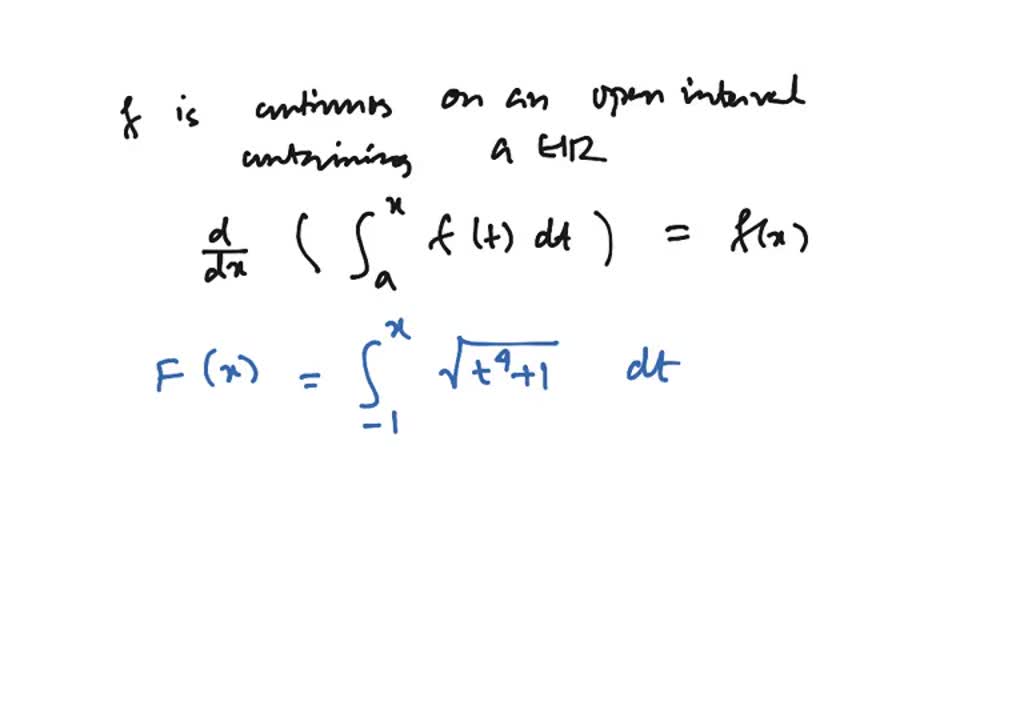

Using the properties of definite integrals, we can write the given integral as follows. Let us recall the first part of the fundamental theorem of calculus (FTC 1) which says d/dx ∫ a x f(t) dt = f(x). Hence the second fundamental theorem of integral calculus is proved.Įxample 2: Evaluate the following derivative of the integral: (d/dx) ∫ x 2x cos t 2 dt. ∫ a b f(t) dt - F(b) = ∫ a a f(t) dt - F(a)īy a property of definite integrals, ∫ a a f(t) dt = 0. Thus, h(x) is a constant function over and hence

We know that h(x) is continuous on (as both g(x) and F(x) are continuous on the same interval) and from the above equation h'(x) = 0. Let us define another function h(x) such that Then by the first part of the fundamental theorem of calculus (FTC 1), g'(x) = f(x). Let us define a new function g(x) such that It is given that F(x) is an anti derivative of f(x).

(Recalling mean value theorem: If f(x) is continuous on, then there exists atleast some point c in such that f(c)= ∫ a b f(x) dx) Since f(x) is continuous on (this is because f(x) is continuous on and is a subinterval of ), by mean value theorem, there exists at least one point c in the interval such that, Using this in the above equation,į'(x) = lim h → 0 (1/h) ∫ x x+h f(t) d t. Using this in the above equation,īy another property of definite integrals, ∫ a b f(x) dx + ∫ b c f(x) dx = ∫ a c f(x) dx. Using this definition in the above equation,į'(x) = lim h → 0 (1/h) īy a property of definite integrals, ∫ a b f(x) dx = - ∫ b a f(x) dx. "If f(x) is a function that is continuous over and differentiable over (a, b) and if F(x) is defined as F(x) = ∫ a x f(t) dt then F'(x) = f(x) over the interval " (OR)īy the definition of the derivative of a function,.The first fundamental theorem of calculus (FTC 1) is stated as follows. Using this theorem, we can evaluate the derivative of a definite integral without actually evaluating the definite integral.

The first fundamental theorem of calculus (FTC Part 1) is used to find the derivative of an integral and so it defines the connection between the derivative and the integral. First Fundamental Theorem of Calculus (Part 1)


 0 kommentar(er)
0 kommentar(er)
